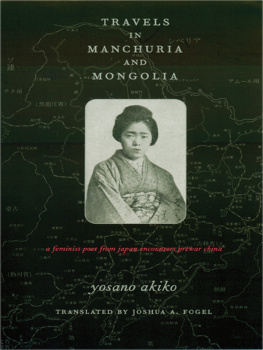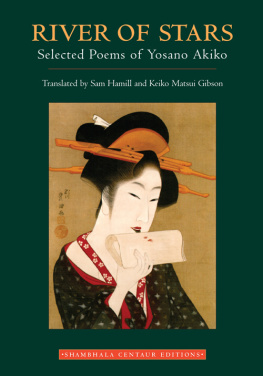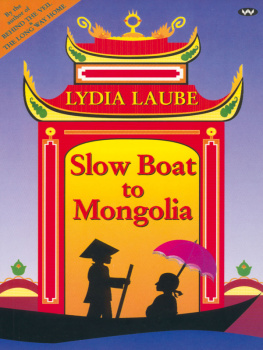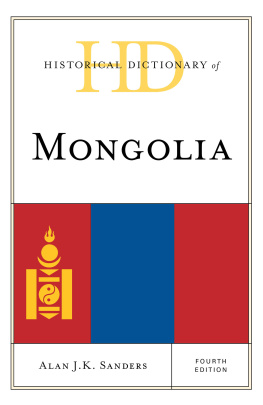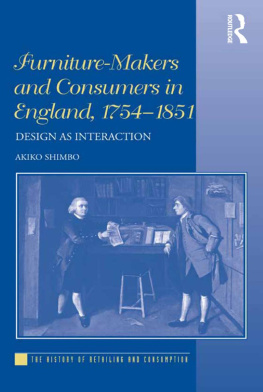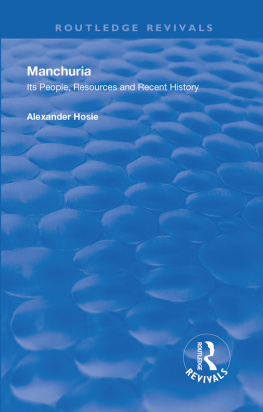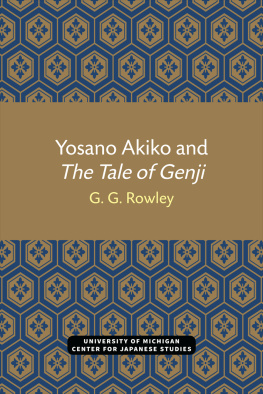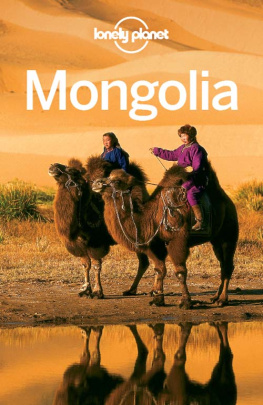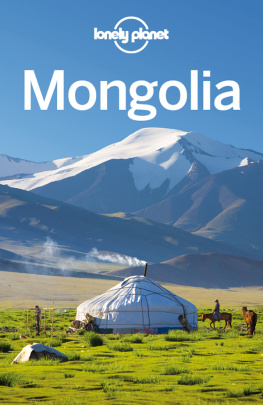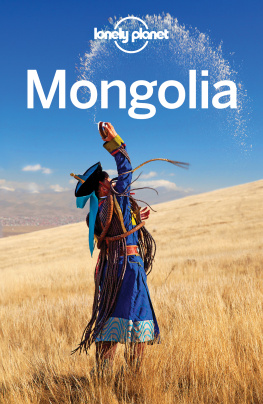Yosano Akiko - Travels in Manchuria and Mongolia
Here you can read online Yosano Akiko - Travels in Manchuria and Mongolia full text of the book (entire story) in english for free. Download pdf and epub, get meaning, cover and reviews about this ebook. year: 2012, publisher: Columbia University Press, genre: Non-fiction. Description of the work, (preface) as well as reviews are available. Best literature library LitArk.com created for fans of good reading and offers a wide selection of genres:
Romance novel
Science fiction
Adventure
Detective
Science
History
Home and family
Prose
Art
Politics
Computer
Non-fiction
Religion
Business
Children
Humor
Choose a favorite category and find really read worthwhile books. Enjoy immersion in the world of imagination, feel the emotions of the characters or learn something new for yourself, make an fascinating discovery.
- Book:Travels in Manchuria and Mongolia
- Author:
- Publisher:Columbia University Press
- Genre:
- Year:2012
- Rating:5 / 5
- Favourites:Add to favourites
- Your mark:
- 100
- 1
- 2
- 3
- 4
- 5
Travels in Manchuria and Mongolia: summary, description and annotation
We offer to read an annotation, description, summary or preface (depends on what the author of the book "Travels in Manchuria and Mongolia" wrote himself). If you haven't found the necessary information about the book — write in the comments, we will try to find it.
Travels in Manchuria and Mongolia — read online for free the complete book (whole text) full work
Below is the text of the book, divided by pages. System saving the place of the last page read, allows you to conveniently read the book "Travels in Manchuria and Mongolia" online for free, without having to search again every time where you left off. Put a bookmark, and you can go to the page where you finished reading at any time.
Font size:
Interval:
Bookmark:

TRAVELS
IN
MANCHURIA AND MONGOLIA


Columbia University Press
Publishers Since 1893
New York Chichester, West Sussex
cup.columbia.edu
Copyright 2001 Columbia University Press
All rights reserved
E-ISBN: 978-0-23-150666-3
Library of Congress Cataloging-in-Publication Data Yosano, Akiko, 18481942.
[Man-Mo yuki. English]
Travels in Manchuria and Mongolia / Yosano Akiko ; translated and edited by Joshua A. Fogel.
p. cm.
Includes bibliographical references and index.
ISBN 0-231-12318-3 (cloth : alk. paper)ISBN 0-231-12319-1 (pbk. : alk. paper)
1. Yosano, Akiko, 18481942JourneysChinaManchuria. 2. Yosano, Akiko, 18481942JourneysMongolia. 3. Manchuria (China)Description and travel. 4. MongoliaDescription and travel. I. Fogel, Joshua A., 1950
II. Title.
PL819.O8 M3613 2001
895.6'844 03dc21
| [B] | 2001028015 |
CIP
A Columbia University Press E-book.
CUP would be pleased to hear about your reading experience with this e-book at .

CONTENTS

YOSANO AKIKO
AND
HER CHINA TRAVELOGUE OF 1928
Joshua A. Fogel
TRAVELS
IN
MANCHURIA AND MONGOLIA
Yosano Akiko


It behooves me to acknowledge the assistance of two people in the translation of this text. My colleague Toshi Hasegawa helped me go over spots I had found problematic throughout the travelogue, and Christopher Atwood was kind enough to answer an endless string of queries about Mongolian references in the text that I would never have been able to decipher without his help. Finally, Janine Beichman, who has worked extensively on Yosano Akiko, was kind enough to read through the introduction and make numerous helpful suggestions. Unless otherwise noted, all poems within the travelogue were originally written in Japanese.

YOSANO AKIKO
AND
HER CHINA TRAVELOGUE OF 1928

Yosano Akiko (18781942) was one of Japans greatest poets and translators from classical Japanese. Born into a confection shopkeepers home in the city of Sakai outside Osaka, she had the good fortune, despite her gender, of being reared in a household full of books. Although her father banished her at the age of one month to the home of an aunt because he so wanted another son, she returned to her natal home after the birth of her brother in August 1880, when she was twenty months old. While she bore the many responsibilities for minding the shop, she consumed the classics of Japanese literature. At the Sakai Girls High School from which she graduated in 1895, she continued reading broadly in Japanese literature as well as European literature and poetry, though most of this must have been done on her own given the level of pedagogy at the time at such a school. In September 1895 when she was a mere sixteen years of age, she published her maiden poem, in the tanka style, in Bungei kurabu (Literary Club), a journal in Tokyo.
In August 1900 she met the famed poet Yosano Tekkan (Hiroshi, 18731935) who was the effective leader of the romantic movement in contemporary Japanese poetry. Although he was married at the time, that common law marriage was on the rocks. Akiko soon thereafter, in June 1901, ran off to Tokyo to live with him, and they were married that September. For the next few years, Akiko published her poetry in Tekkans well-known journal, Myj (Bright Star), and she helped him edit the journal until its demise in 1908as well as during its return to publication from 1921 to 1927. Her first volume of poems, Midaregami (Tangled Hair), containing some four hundred poems, was also published in 1901. This collection was brimming with passion and sensuality, a courageous enough project for a man at the time, let alone for a young woman.
Her eventual output was extraordinary, including over twenty volumes of poetry and a widely used translation of the ancient classic, The Tale of Genji, into modern Japanese. In a Japanese rendition of A Star Is Born, just as Akikos reputation began to soar, Tekkans was veering into a steady decline. It would be an exaggeration to say that his career was defunct by this point, but during their marriage and rearing of eleven children, it would be the sales of her books that kept the Yosano clan afloat.
In November 1911 Tekkan set sail for a long trip to France. Akiko joined him in May of the following year, coming by rail across Northeast Asia and the Trans-Siberian Railway, a trip to which she alludes in the 1928 travelogue translated herein. In France and elsewhere in Western Europe, the Yosanos met with well-known writers and artists with whom they shared aesthetic as well as social concerns. It was during this second decade of the twentieth century that Akiko was becoming increasingly aware of the social problems of Taish-era Japan, and especially of the needs of Japanese women. The experiences in Europe reenforced this awareness.
Yosano Akiko is particularly celebrated for her contributions to Japans first feminist journal of creative writing, Seit (Blue Stocking). She grew to be an outspoken proponent of womens education and suffrage, and in 1921 she became dean and professor at Bunka Gakuin, a free coeducational school, which she founded together with her husband and others. She remained open throughout her life, despite the rigors of raising so many children and fulfilling her many obligations, to meeting younger talents, particularly younger women, in the world of poetry.
When Akiko was at the peak of her career, she and her husband received an offer from the South Manchurian Railway Company (SMR) to sponsor them on a trip through Northeast Asia. Their departure for Manchuria in the spring of 1928 was widely publicized throughout the region, as the extraordinary reception they received everywhere along the route of their travels demonstrates. The late 1920s were a high point of Sino-Japanese tensions, as the Japanese civil and military expansion into Manchuria and North China proceeded. Indeed, the Yosanos had planned to travel south to Beijing, but they were advised against it because of potential violence erupting in that city. On several occasions they directly witnessed anti-Japanese incidents, especially after the murder by Japanese army officers of Manchurian warlord Zhang Zuolin (18751928).
The Yosanos wrote a joint travelogue comprised of Akikos narrative of their voyage and the poems of both. Translated here is Akikos discursive account, which includes inter alia a number of her husbands poems, some in Chinese and some in Japanese. There is considerable evidencein the form of numerous classical Chinese references to poetic and prose textsthat she did extensive research about China either before or, more likely, afterward. The inclusion of offhand references to old and often arcane sources or obscure poetry as a way of demonstrating the authors familiarity with traditional Chinese culture was already by this time a well-trod path for Japanese visitors to China who wrote travelogues. Clearly, even someone with a photographic memory could not have had at his or her fingertips such an enormous breadth of learningand no Japanese carried the necessary dozens of Chinese texts with them in China.
Next pageFont size:
Interval:
Bookmark:
Similar books «Travels in Manchuria and Mongolia»
Look at similar books to Travels in Manchuria and Mongolia. We have selected literature similar in name and meaning in the hope of providing readers with more options to find new, interesting, not yet read works.
Discussion, reviews of the book Travels in Manchuria and Mongolia and just readers' own opinions. Leave your comments, write what you think about the work, its meaning or the main characters. Specify what exactly you liked and what you didn't like, and why you think so.

